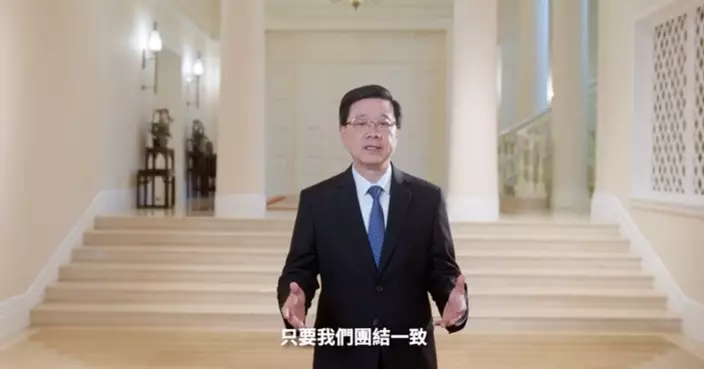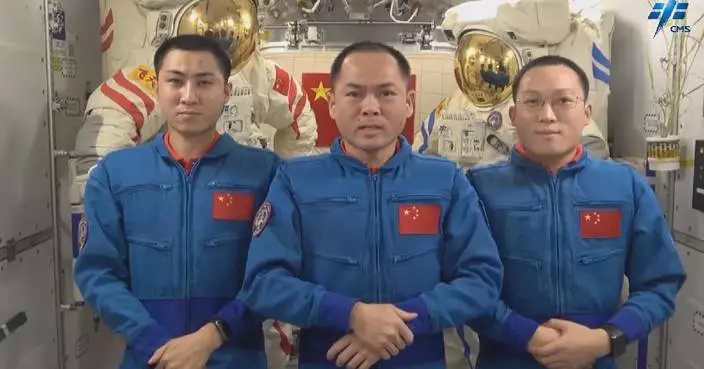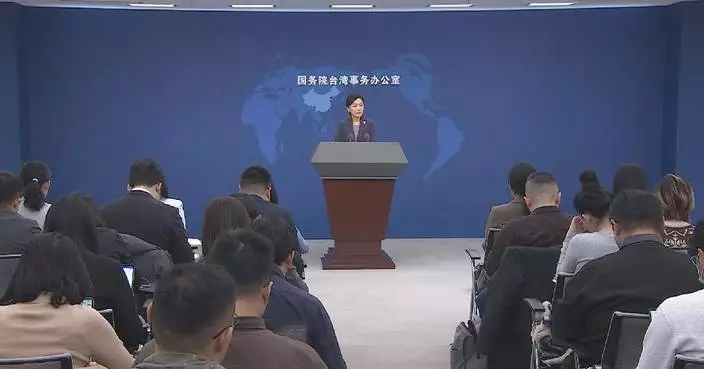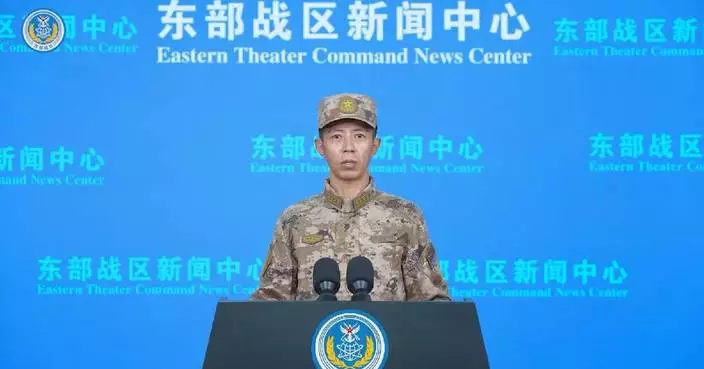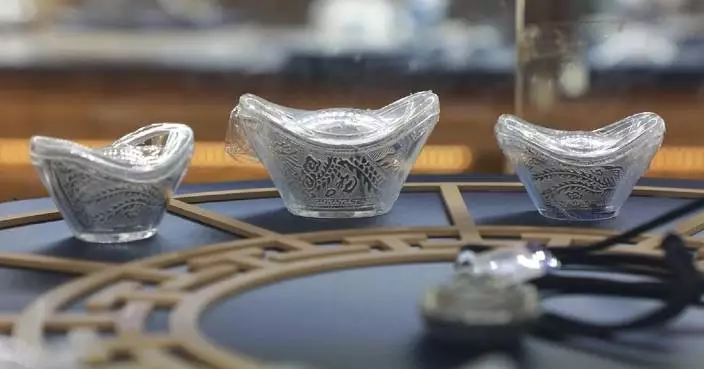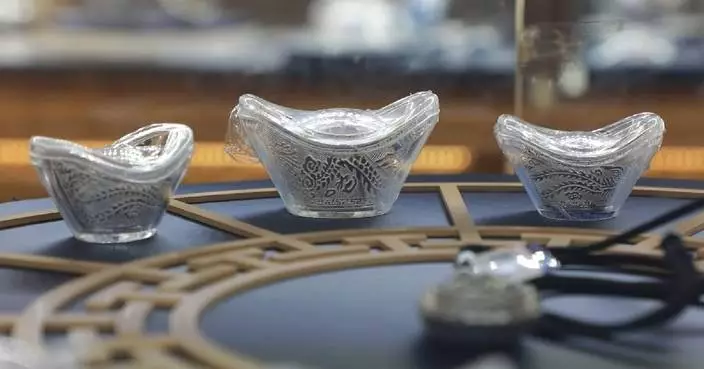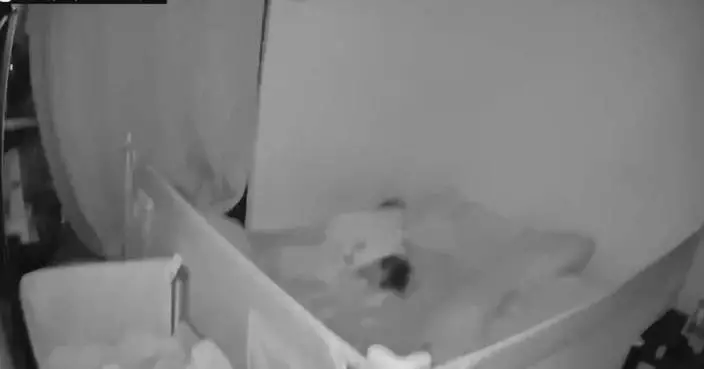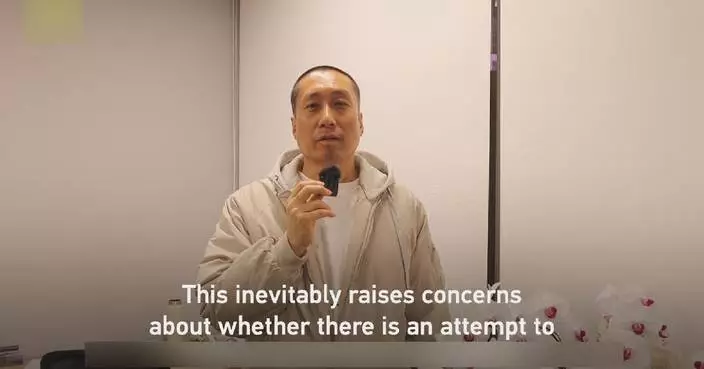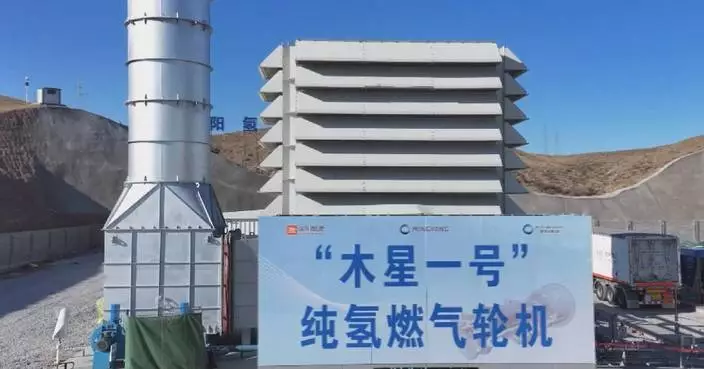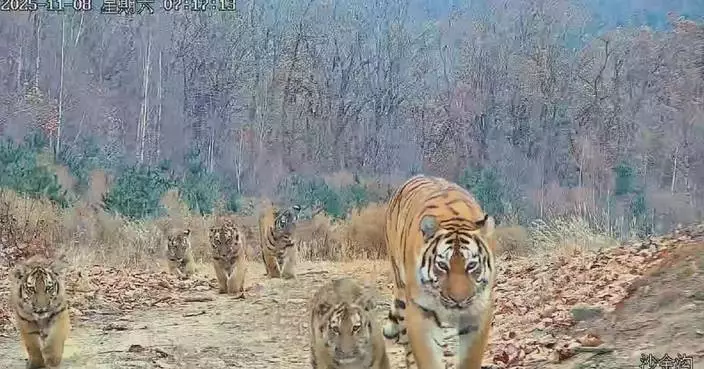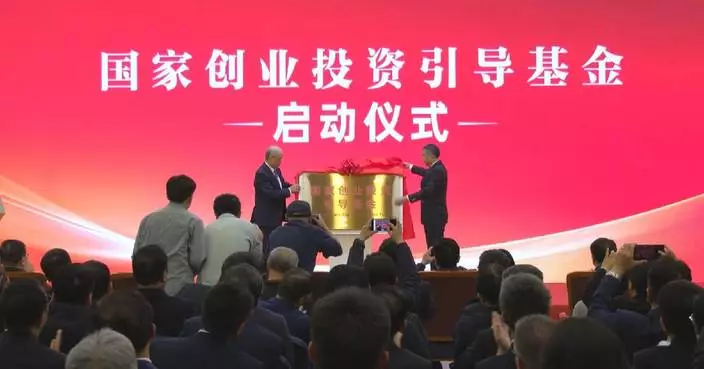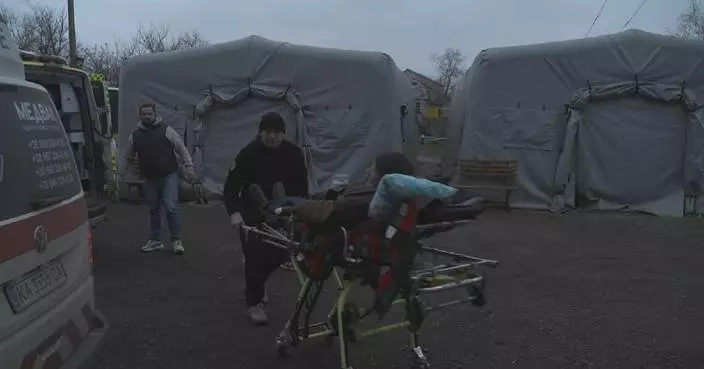Feature · News

China's grain purchases total 415 million tonnes in 2025

China Coast Guard patrols Huangyan Island territorial waters, surrounding areas

UAE, Australia ring in New Year with spectacular fireworks

Justice Mission 2025 aims at defending justice: expert

Chinese military conducts combat readiness patrols over Huangyan Dao
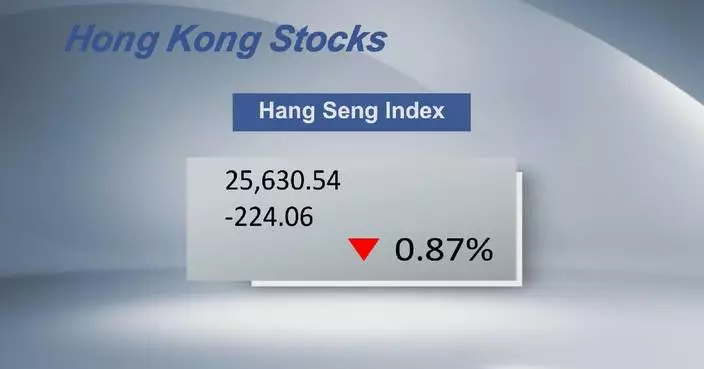
Hong Kong stocks close lower
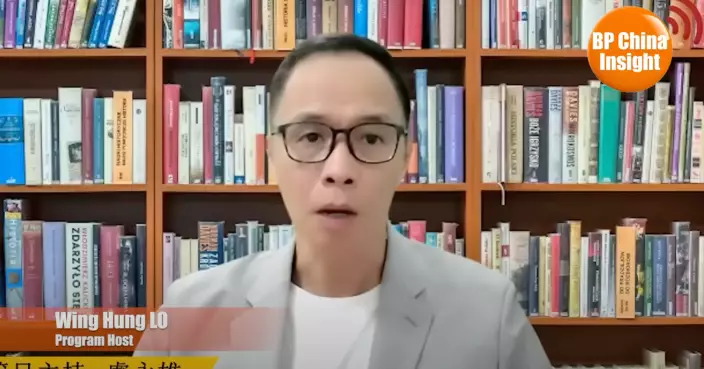
BP China Insight: U.S.'s collective silence on China's military exercises is a state of semi-abandonment

BP China Insight: China calls out “hypocritical” nations over drill concerns

Viral '6-7' tops 2025 list of overused words and phrases

Mr John Lee Attends the New Year Countdown and Shares Joy with the Citizens

US military strikes 5 more alleged drug boats, killing 8 and possibly leaving survivors
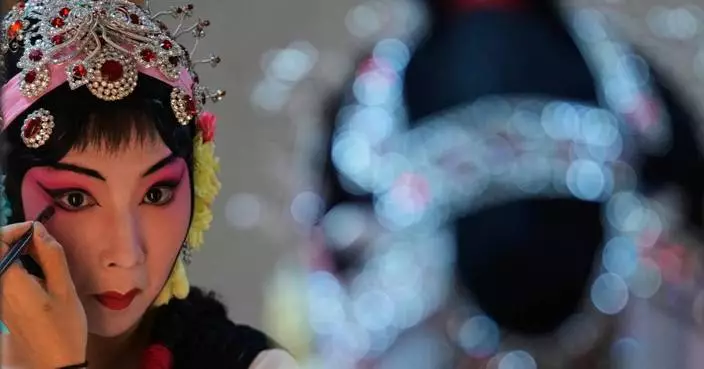
Photos show the ancient art of Peking opera works hard to keep flourishing in the digital age

Government Appoints Appeal Panel for Critical Infrastructure Security Oversight

Trump says he's dropping push for National Guard in Chicago, LA and Portland, Oregon, for now

Nigerian authorities say British boxer Anthony Joshua released from hospital after road crash

French government defends granting citizenship to George and Amal Clooney

BP China Insight: U.S.'s collective silence on China's military exercises is a state of semi-abandonment

BP China Insight: China calls out “hypocritical” nations over drill concerns

Viral '6-7' tops 2025 list of overused words and phrases

Mr John Lee Attends the New Year Countdown and Shares Joy with the Citizens
China's grain purchases total 415 million tonnes in 2025
China Coast Guard patrols Huangyan Island territorial waters, surrounding areas
UAE, Australia ring in New Year with spectacular fireworks
Justice Mission 2025 aims at defending justice: expert
Chinese military conducts combat readiness patrols over Huangyan Dao
Hong Kong stocks close lower

US military strikes 5 more alleged drug boats, killing 8 and possibly leaving survivors

Photos show the ancient art of Peking opera works hard to keep flourishing in the digital age

Government Appoints Appeal Panel for Critical Infrastructure Security Oversight

Trump says he's dropping push for National Guard in Chicago, LA and Portland, Oregon, for now

Nigerian authorities say British boxer Anthony Joshua released from hospital after road crash

French government defends granting citizenship to George and Amal Clooney
Feature·Bloggers

【What Say You?】Black Riots “comrades” Thought Ukraine Was Another “Resistance”—Then the Contract Hit

【Bastille Commentary】Green Nails? The Lie No Lawyer Would Touch

【What Say You?】How Jimmy Lai's Right-Hand Man Ran a Corporate Shakedown Operation

【Deep Blue】Trump's "Empire Strikes Back" Gambit: A Long Shot at Best

【What Say You?】Unfinished business With the “anti-Hong Kong triangle”?

【Bastille Commentary】UK's Hypocrisy on Display: Seizing Private Assets While Preaching Freedom
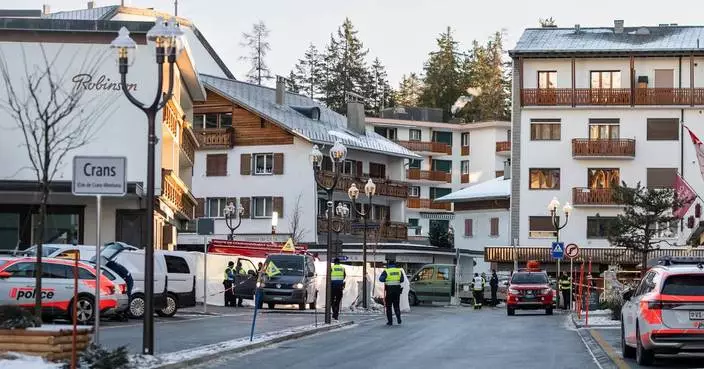
Dozens presumed dead and about 100 injured in fire at Swiss Alps bar during New Year's celebration
- Health subsidies expire, launching millions of Americans into 2026 with steep insurance hikes
- Russia says Ukrainian drone strike kills 24 in occupied Ukraine as tensions grow amid peace talks
- Commerce Bancshares, Inc. Completes FineMark Holdings, Inc. Acquisition
- Pope opens 2026 with plea for peace in countries bloodied by war, families wounded by violence
- Cash machines in Bulgaria issue euros for the first time after joining the currency union
- A look at some of the worst fires in bars, nightclubs and music venues
- Bulgaria is joining the euro. Here's what it means for consumers and businesses
- Tineco Turns Floor Care into an Art of Living at CES 2026
- PHOTO COLLECTION: A look at AP's top photos in December
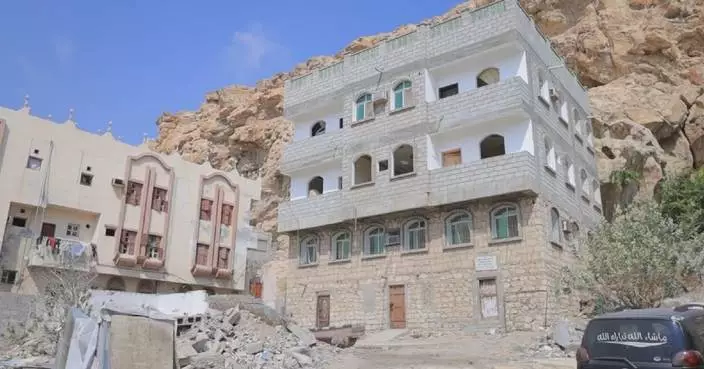
Saudi-led airstrike on Yemen's Mukalla port damages homes, sparking fear among locals
- Cross-regional passenger trips in China expected to go up 21 percent on New Year's Day
- China's trade-in program generates sales of over 2.6 trillion yuan in 2025: data
- Indonesia welcomes birth of giant panda cub in conservation milestone
- Displaced Palestinians pin New Year’s hopes on recovery amid uncertainties
- China's southernmost city Sansha holds flag-raising ceremonies to usher in New Year
- Heatwave hits South American countries ahead of New Year holiday
- China sees travel surge on New Year's Day
- Youth bands strike new chord for China-U.S. ties
- Israel bans operations of 37 int'l aid groups in Gaza Strip, West Bank

Happy New Year for Hong Kong’s Tourism and Mega Events Economy
- Haier Teams Up with Paris Saint-Germain to Create Champion Experiences for Global Users
- GAC's Global Ecosystem Takes Shape as Overseas Sales Nearly Triple in Two Years
- XJTLU marks 20 years with global 'Light Up the World' celebration
- Visit Malaysia 2026 Countdown Festival: A New Year’s Eve Celebration
- New Year's Day: What's open? Retailers. What's closed? Government and banks
- Wall Street falls in light trading on the final day of 2025, another banner year for markets
- Some Warren Buffett wisdom on his last day leading Berkshire Hathaway
- COLE HAAN UNVEILS GRANDPRØ TENNIS 2.0: A NEW ERA OF LIGHTNESS INNOVATION
- Ariyana Convention Centre Danang Reaffirms Its Global Prestige By Securing Both The "Viet Nam Best Mice Venue 2025" And "Best Convention Centre In Vietnam" Accolades

If someone's always late, is it time blindness, or are they just being rude?
- Flu is rising rapidly, driven by a new variant. Here's what to know
- Meta buys startup Manus in latest move to advance its artificial intelligence efforts
- The year's first meteor shower and supermoon clash in January skies
- What's inside Mexico's Popocatépetl volcano? Scientists obtain first 3D images
- 2025 was one of three hottest years on record, scientists say
- Trying to improve your health and wellness in 2026? Keep it simple
- The moon and sun figure big in the new year's lineup of cosmic wonders
- New York subway ends its MetroCard era and switches fully to tap-and-go fares
- Foods with healthy-sounding buzzwords could be hiding added sugar in plain sight
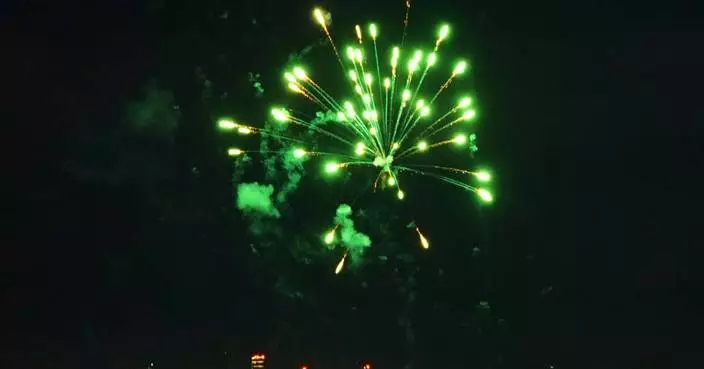
Greece and Cyprus are welcoming 2026 without the bang
- Cities around the world welcome 2026 with thunderous fireworks and heightened security
- A Kenyan barber who wields a sharpened shovel thrives on Africa's social media craze
- Betty Boop and 'Blondie' enter the public domain in 2026, accompanied by a trio of detectives
- Nasty weather on tap for New Year fetes at Rose Parade in California and revelers in New York City
- English actors Tom Hiddleston and Zawe Ashton welcome their second child
- Release of the Latest Ecological Documentary on Huangyan Dao: An Unfading Commitment: Why Huangyan Dao Needs Protection
- In a breakneck digital era, the ancient art of Peking opera works hard to keep flourishing
- LOCALIZE IT: Marching bands, equestrian units from several states featured in Rose Parade on Jan. 1
- Roses in the rain? New Year's Day parade in Pasadena gets wet forecast. Bundle up for NYC ball drop

Miami beats defending national champ Ohio State 24-14 in the CFP quarterfinal at Cotton Bowl
- Premier League club Chelsea parts ways with head coach Enzo Maresca
- Lions roar and Eagles fly: All the 24 teams' nicknames at the Africa Cup of Nations
- Many memories remain as the Buffalo Bills bid farewell to their long-time home, dubbed 'The Ralph'
- Entering Orange Bowl, Texas Tech and Oregon coaches remembering their roots
- Outdoor hockey. In Miami. It's finally going to happen on Friday, when Panthers play Rangers
- Set to go: Two weeks of tennis mania Down Under ahead of the Australian Open
- Pastrnak leads Bruins past Oilers 6-2 to stop 6-game slide
- Another bye bites the dust as defending champ Ohio State falls to Miami in CFP quarterfinals
- Sweden beats US 6-3 in world junior hockey group finale. Canada tops Finland 7-4

Yau Ma Tei Police Station Exhibition Opens: Explore Hong Kong's Cinematic History!
- Public Healthcare Fee Reform Successfully Implemented, Enhancing Patient Care in Hong Kong Hospitals
- Public Healthcare Fee Reform Officially Launched, Enhances Patient Protection and Accessibility in Hong Kong Hospitals.
- No New Chikungunya Fever Cases Reported in Hong Kong, Total Stands at 82 for the Year
- Home Affairs Opens 18 Cold Shelters Amid Severe Weather for Those in Need
- CHP Urges Vulnerable Groups to Take Precautions Amid Cold Weather Risks
- Government Announces New Appointments to ICAC Advisory Committees for Two-Year Terms Starting January 1, 2026.
- Chief Executive Confirms Valid Oaths for All 90 Members of Hong Kong's Eighth Term Legislative Council
- Secretary expresses condolences for FEHD worker killed in accident on Canton Road
- Comprehensive Medical Support Offered to Wang Fuk Court Fire Victims in Hong Kong

China’s 2025 film successes signal growing global presence, influence: experts
- Russian Ministry of Defense releases details of Ukrainian attack on Russian presidential residence
- Hong Kong, Macao usher in 2026 with solemn flag-raising ceremonies
- Xi's New Year message resonates with nation's hardworking people
- China values, welcomes ROK president's visit: FM
- Twin giant pandas seen frolicking in snowy wonderland in northwest China
- Festive celebrations held across China to welcome new year
- Xi's New Year message inspires national optimism
- Countries around world welcome 2026 with fireworks, shows
- Proud citizens greet new year gather at China's national flag-raising ceremony
Category · News

Miami beats defending national champ Ohio State 24-14 in the CFP quarterfinal at Cotton Bowl

Dozens presumed dead and about 100 injured in fire at Swiss Alps bar during New Year's celebration

Health subsidies expire, launching millions of Americans into 2026 with steep insurance hikes

Premier League club Chelsea parts ways with head coach Enzo Maresca

Russia says Ukrainian drone strike kills 24 in occupied Ukraine as tensions grow amid peace talks

Yau Ma Tei Police Station Exhibition Opens: Explore Hong Kong's Cinematic History!

Public Healthcare Fee Reform Successfully Implemented, Enhancing Patient Care in Hong Kong Hospitals

Commerce Bancshares, Inc. Completes FineMark Holdings, Inc. Acquisition

Pope opens 2026 with plea for peace in countries bloodied by war, families wounded by violence

Lions roar and Eagles fly: All the 24 teams' nicknames at the Africa Cup of Nations

Many memories remain as the Buffalo Bills bid farewell to their long-time home, dubbed 'The Ralph'

Entering Orange Bowl, Texas Tech and Oregon coaches remembering their roots

Outdoor hockey. In Miami. It's finally going to happen on Friday, when Panthers play Rangers

Cash machines in Bulgaria issue euros for the first time after joining the currency union

A look at some of the worst fires in bars, nightclubs and music venues

Public Healthcare Fee Reform Officially Launched, Enhances Patient Protection and Accessibility in Hong Kong Hospitals.
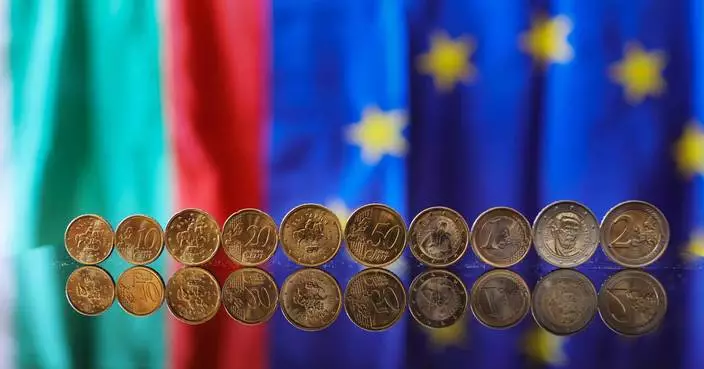
Bulgaria is joining the euro. Here's what it means for consumers and businesses
Saudi-led airstrike on Yemen's Mukalla port damages homes, sparking fear among locals
Cross-regional passenger trips in China expected to go up 21 percent on New Year's Day

China's trade-in program generates sales of over 2.6 trillion yuan in 2025: data
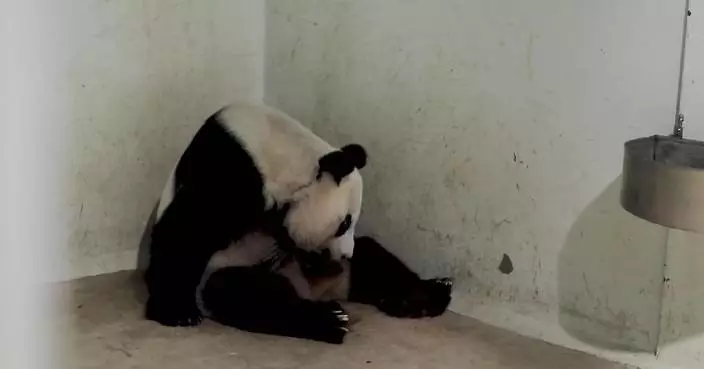
Indonesia welcomes birth of giant panda cub in conservation milestone
Displaced Palestinians pin New Year’s hopes on recovery amid uncertainties

No New Chikungunya Fever Cases Reported in Hong Kong, Total Stands at 82 for the Year
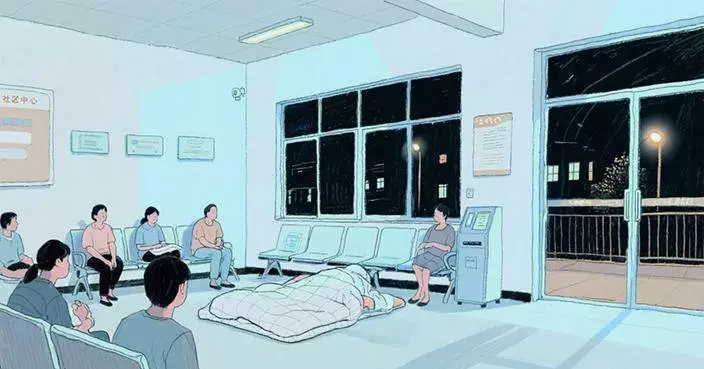
Home Affairs Opens 18 Cold Shelters Amid Severe Weather for Those in Need
China's southernmost city Sansha holds flag-raising ceremonies to usher in New Year
Heatwave hits South American countries ahead of New Year holiday
China sees travel surge on New Year's Day

Youth bands strike new chord for China-U.S. ties
Israel bans operations of 37 int'l aid groups in Gaza Strip, West Bank
China’s 2025 film successes signal growing global presence, influence: experts
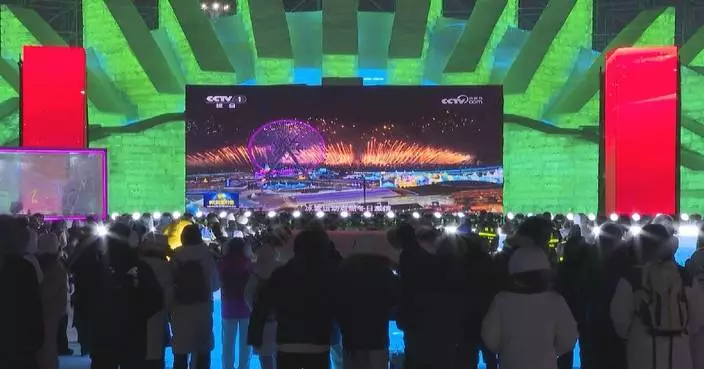
Xi's New Year address inspires people across nation to strive for progress in 2026
Russian Ministry of Defense releases details of Ukrainian attack on Russian presidential residence
Hainan sees booming consumption, tourism markets after special customs operations
Hong Kong, Macao usher in 2026 with solemn flag-raising ceremonies
Xi's New Year message resonates with nation's hardworking people
China values, welcomes ROK president's visit: FM

Tineco Turns Floor Care into an Art of Living at CES 2026
U.S. consumers feel pinch of high tariffs
Twin giant pandas seen frolicking in snowy wonderland in northwest China
Giant panda cubs make New Year debut in Chengdu

Greece and Cyprus are welcoming 2026 without the bang
Festive celebrations held across China to welcome new year

CHP Urges Vulnerable Groups to Take Precautions Amid Cold Weather Risks

Set to go: Two weeks of tennis mania Down Under ahead of the Australian Open
Report reveals widespread destruction, deteriorated humanitarian situation in Gaza in 2025
Türkiye grants visa-free entry to Chinese tourists
Xi's New Year message inspires national optimism
Countries around world welcome 2026 with fireworks, shows
Proud citizens greet new year gather at China's national flag-raising ceremony

Happy New Year for Hong Kong’s Tourism and Mega Events Economy

Government Announces New Appointments to ICAC Advisory Committees for Two-Year Terms Starting January 1, 2026.

PHOTO COLLECTION: A look at AP's top photos in December
China's railway trips expected to hit 18.25 million on New Year's Day

Haier Teams Up with Paris Saint-Germain to Create Champion Experiences for Global Users
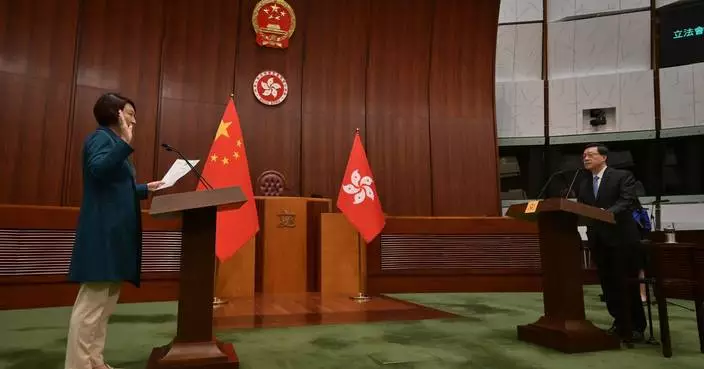
Chief Executive Confirms Valid Oaths for All 90 Members of Hong Kong's Eighth Term Legislative Council
Hong Kong, Macao hold New Year flag-raising ceremonies
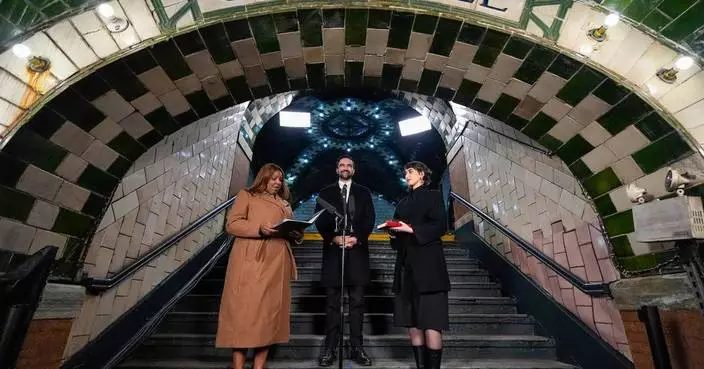
Zohran Mamdani sworn in as New York City mayor at historic subway station

Pastrnak leads Bruins past Oilers 6-2 to stop 6-game slide

Another bye bites the dust as defending champ Ohio State falls to Miami in CFP quarterfinals

Volunteer in Iran's Revolutionary Guard reportedly killed during widening protests
Global observers hail Xi's New Year message

Sweden beats US 6-3 in world junior hockey group finale. Canada tops Finland 7-4

Flames beat Flyers 5-1 for 4th straight home victory

Secretary expresses condolences for FEHD worker killed in accident on Canton Road

MacKinnon scores 400th goal and Nichushkin nets hat trick as Avalanche rout Blues 6-1

Spurs survive injury scare to Wembanyama, rally to beat Knicks 134-132 in NBA Cup final rematch

Spurs' Wembanyama doesn't expect to miss time after hyperextending knee in win over Knicks

After waiting 36 years, French soccer fans finally have a capital city derby again as PSG faces PFC

Cities around the world welcome 2026 with thunderous fireworks and heightened security
China's splendid landscapes bathed in New Year's sunrise glow

Capitol riot 'does not happen' without Trump, Jack Smith told Congress
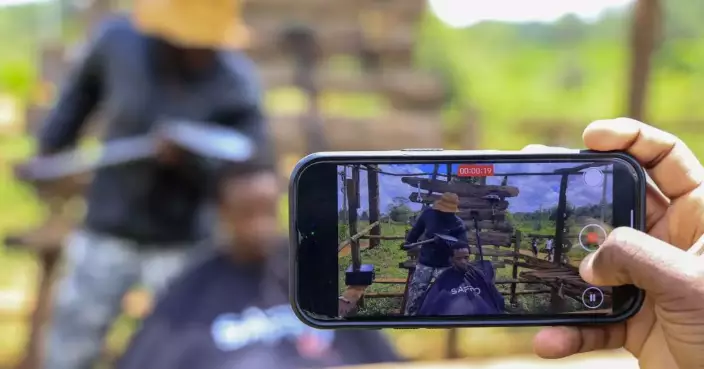
A Kenyan barber who wields a sharpened shovel thrives on Africa's social media craze

GAC's Global Ecosystem Takes Shape as Overseas Sales Nearly Triple in Two Years

Reliever Hunter Harvey and the Chicago Cubs finalize 1-year contract

Gilgeous-Alexander scores 30 points as Thunder top Trail Blazers 124-95

Thompson scores twice as Sabres beat Stars 4-1 for 10th straight victory

McCollum's jumper in final seconds leads Wizards to a 114-113 win over the Bucks

Watson scores 24 points as Nuggets hold off Raptors to win 106-103 without the injured Jokic

Luke Hughes breaks 3rd-period tie in the Devils' 3-2 victory over the Blue Jackets

Okoro's season-high 24 points lead short-handed Bulls past Pelicans 134-118

John Gibson makes 24 saves as surging Red Wings beat slumping Jets, 2-1

XJTLU marks 20 years with global 'Light Up the World' celebration
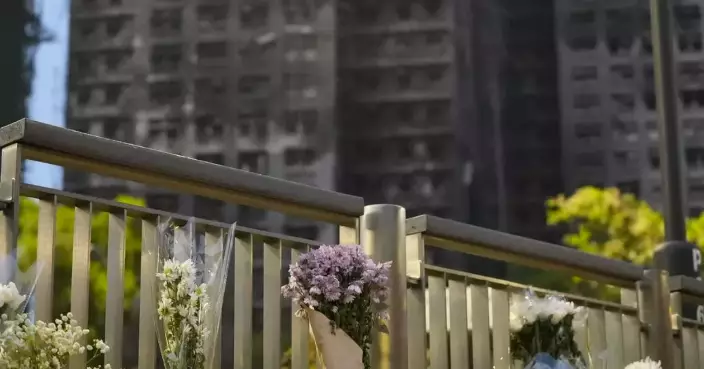
Comprehensive Medical Support Offered to Wang Fuk Court Fire Victims in Hong Kong

BP China Insight : PLA "Twin-Tailed Scorpion" Drone Overflies Taipei; J-20 Nears—Trump Shrugs It Off


